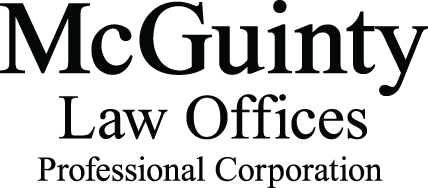03 Oct How Public Discourse Is Harmed By Social Media Mobbing
Impact of Social Media on Public Discourse
In the last three months, we have seen a number of high-profile cases of what arguably amounts to public censorship-by-other-means. For example, in March Canadians witnessed the resignation of Andrew Potter from the McGill University Institute for the Study of Canada following his expression of controversial views.
The following month, Canadians witnessed the removal of Sen. Lynn Beyak from the Standing Senate Committee on Aboriginal Peoples following her expression of alarming views.
Then in May, Canadians read about the resignations of Jonathan Kay as editor-in-chief of The Walrus magazine and Hal Niedzviecki, as editor of The Writers’ Union of Canada magazine amid concerns about controversial thoughts they had expressed.
At the same time, social media and email have enabled people who share certain allegiances to exert unprecedented amounts of pressure on people, institutions, organisations and businesses of all kinds and sizes.
In these recent cases, there were valid reasons for heavy criticism against the parties in question. But their removal under pressure from certain parts of our public forum marks a point of impoverishment for public debate, though it may feel like a moment of success for some.
Public Discourse vs. Censorship In Today’s World
The 19th-century English philosopher John Stuart Mill believed that free speech fosters authenticity, genius, creativity, individuality and human flourishing. He warned against censoring those we disagree with because the opinion that is silenced may in fact be true, or contain a portion of the truth; and because in the face of censorship, unchallenged opinions become mere prejudices and dead dogmas that are inherited rather than adopted after lively public discourse and reflective consideration.
Mill’s thesis is as true today as was when he wrote it.
In the advent of widespread social media, we are witnessing a threat that is as old as human history, and it is rearing its ugly head in a uniquely 21st-century way.
We are witnessing the threat of mob-rule, that is, the rule of those who are mobbed by their passions, rather than governed by clear, sober and reasoned thought. In our day, the Twitter mobs, or what I call the Twobs, are made up of those who wish to scrub our public forum of ideas they disagree with, and to remake “the public” in their own image.
If our leaders in business, government and non-governmental organisations succumb too easily to this pressure, it will be to our collective detriment.
The desire to wash the public of views that many find disagreeable instead of benefitting from a rigorous exchange of ideas is at the root of a totalitarian way of thinking, for it seeks to rob others of their individuality, supplanting their particularity and their uniqueness with sameness.
The 20th-century American political theorist Hannah Arendt warned against this desire in The Origins of Totalitarianism. Her thesis, like Mill’s, is apt today.
Mob rule in the public forum prefers purism to diversity, and absolutism to pluralism. It opposes messy, organic and good-faith dialogue short of hate speech in favour of steam-rolling the opposition. Whether the operator of the steam-roller is a conservative or a liberal matters little to he or she who looks up from beneath the wheel.
Media Motivations And Mob Rule
Unfortunately, the forces that shape our public forum are encouraging this kind of behaviour. Media’s revenue model is built around selling conflict, and the algorithms of our social media accounts are designed to promote news and commentary to us that we are more likely to agree with.
As a result, we are becoming encamped inside polarized groups that fit our preferences. Moreover, we are arguably spending less face-to-face time building deep relationships with other people in our communities, as was famously argued by the renowned American political scientist Robert Putnam in his respected book, Bowling Alone.
This is arguably leading each to an increasingly exclusive attachment to his or her own purisms, unalloyed to elements that might issue from the views of others and strengthen her or his own views in the process.
In the final analysis, we are sequestering ourselves into different parts of our public forum with fault lines growing deeper and deeper, and with fewer and fewer bridges built with the steel of good faith and shared humanity to cross them.
Each part of our public forum seems to be increasingly reserved for those who think alike and our democracy risks becoming anemic.
In such a world, we create not a public forum, but many private forums, and we risk turning our public world into many private worlds. In a word, if you’ll forgive the expression, we risk becoming idiots.
As a result, government tends to become a resource that is captured by groups that are aligned with polarized camps, and that throw overboard all those who disagree with them, for example through unwarranted filibusters or omnibus bills.
Free Speech In A Democratic Society
With a democratic system in which a plurality of the vote count wins you a majority of the seat count, this approach to governing is hardly sustainable for our democracy, for it throws our neighbours underfoot.
Instead, we would do better to try to build lasting relationships founded on good faith and public discourse even with those with whom we disagree from time to time. We might then be better prepared to treat positions of public influence as power that is held in trust for the benefit of all.
–
This article was originally posted in the Ottawa Citizen. Click here for the original.



